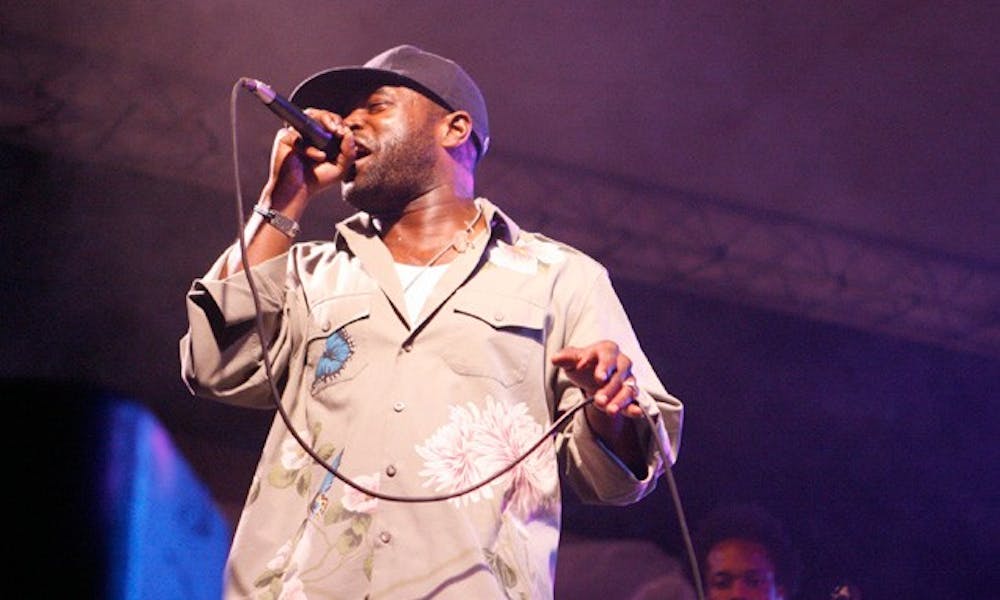The Class of 2010 experienced a sophomore year that was heavy in transitions surrounding the lacrosse case, housing facilities and faculty members.
The lacrosse case continued to attract significant media attention in June when a North Carolina State Bar Disciplinary Hearing Commission disbarred Durham District Attorney Mike Nifong for his role in the scandal.
In August, Duke students returned to campus to find the Outpost—which promotes outdoor activity—below the West Campus Plaza. Duke Bikes, headquartered in the Outpost, began to promote health and sustainability by loaning bikes to students free of charge.
Sustainability and conservation also remained an important issue as the Duke community dealt with a statewide drought by trying to conserve water.
Also in August, medical students welcomed Dr. Nancy Andrews as the new dean of the School of Medicine. Andrews came from Harvard Medical School, where she was dean for basic sciences and graduate studies. She was the first woman to lead any top-ten medical school. U.S. News & World Report’s annual Honor Roll of America’s Best Hospitals named Duke University Medical Center the seventh best hospital in the country.
In September, Residence Life and Housing Services announced that Few Quadrangle would be closed for renovations from May 2008 to January 2009. The renovations resulted in a housing shortage that made doubles on West Campus unavailable for rising juniors and seniors unaffiliated with selective living groups, forcing more students to live on Central Campus.
In October, legal action surrounding the lacrosse case continued, as the first of several lawsuits was filed. The three lacrosse players falsely accused of rape and other charges—Reade Seligmann, Collin Finnerty and David Evans—filed a civil rights suit against Durham and 13 other parties, including Nifong and members of the Durham Police Department.
In addition to the accused players’ lawsuits, 38 unindicted lacrosse players and their families sued the University, Durham, Nifong and others in February seeking damages.
December saw the Board of Trustees approve extensive changes to Duke’s financial aid system. These changes increased the amount of aid given and reduced the size of student loans starting in the 2008-2009 academic year.
The second semester had a tragic beginning when engineering graduate student Abhijit Mahato, 29, was shot and killed in his home at the Anderson Apartments near West Campus Jan. 18.
Stephen Oates, 19 and a Durham resident, was later arrested and charged in Mahato’s death. Laurence Lovette, 17, was also arrested in the Mahato case, but not before being charged with another murder.
A second tragedy took place in the Triangle in March when Eve Carson, a senior and student body president at the University of North Carolina at Chapel Hill, was kidnapped and murdered. Durham residents Lovette and Demario Atwater were arrested and charged with the murder.
A report released by DPD found that Mahato’s robbery and murder was part of a collection of offenses that contributed to a 1 percent increase in crime in Durham for 2008. On campus, however, there was an overall decrease in crime.
In March, more housing plans were announced when the Board of Trustees approved a new master plan for Central Campus. The design for the campus looked to better integrate Central Campus with East and West campuses.
In mid-April, students and other community members responded to international disputes by holding pro-Tibet and pro-China protests. As a result of her involvement in the April 9 rally, freshman Grace Wang—a Chinese student—received threats and retaliation from both Duke community members and international dissenters. The backlash included the vandalizing of her family’s home in China.
Also in April, a student pledging for off-campus fraternity Alpha Delta Phi, formerly chartered as Sigma Alpha Epsilon, was treated for hypothermic shock and a seizure at Duke Hospital after allegedly being hazed at a pledge event. The student later filed a complaint against a fraternity member and took a medical leave of absence from the University.
In sports, the West Virginia Mountaineers dismissed the men’s basketball team in the second round of the NCAA Tournament. On the women’s side, head coach Joanne P. McCallie’s first season produced a 25-10 record for the woman’s basketball team that ended in the Sweet 16 of the NCAA Tournament.
The year was also marked by the departure of a number of important figures in the athletics department. Men’s soccer head coach John Rennie retired at the end of the soccer season after his 29th year at the University. Rennie led his team to Duke’s first NCAA championship in any sport in 1986.
Football head coach Ted Roof’s term with Duke ended after a bleak one-win season, and he left with a 6-45 career record. David Cutcliffe, offensive coordinator at the University of Tennessee and former head coach at Ole Miss, took the helm of the program in December.
In April, Director of Athletics Joe Alleva accepted the athletic director job at Louisiana State University after 32 years at Duke. His tenure was marked by successful teams and significant fundraising, but was tainted by a baseball steroids scandal, a boating accident involving his son and the lacrosse case.
Following the basketball season, men’s basketball associate head coach Johnny Dawkins announced his acceptance of Stanford University’s offer to become the Cardinal’s head coach.
In June, John Burness, senior vice president for public affairs and government relations, ended his administrative tenure at the University. Robert Thompson, dean of Trinity College of Arts and Sciences, returned to teaching, and University Secretary and Vice President Allison Haltom stepped down after being at the University since 1968, when she came as a student.
Get The Chronicle straight to your inbox
Signup for our weekly newsletter. Cancel at any time.

